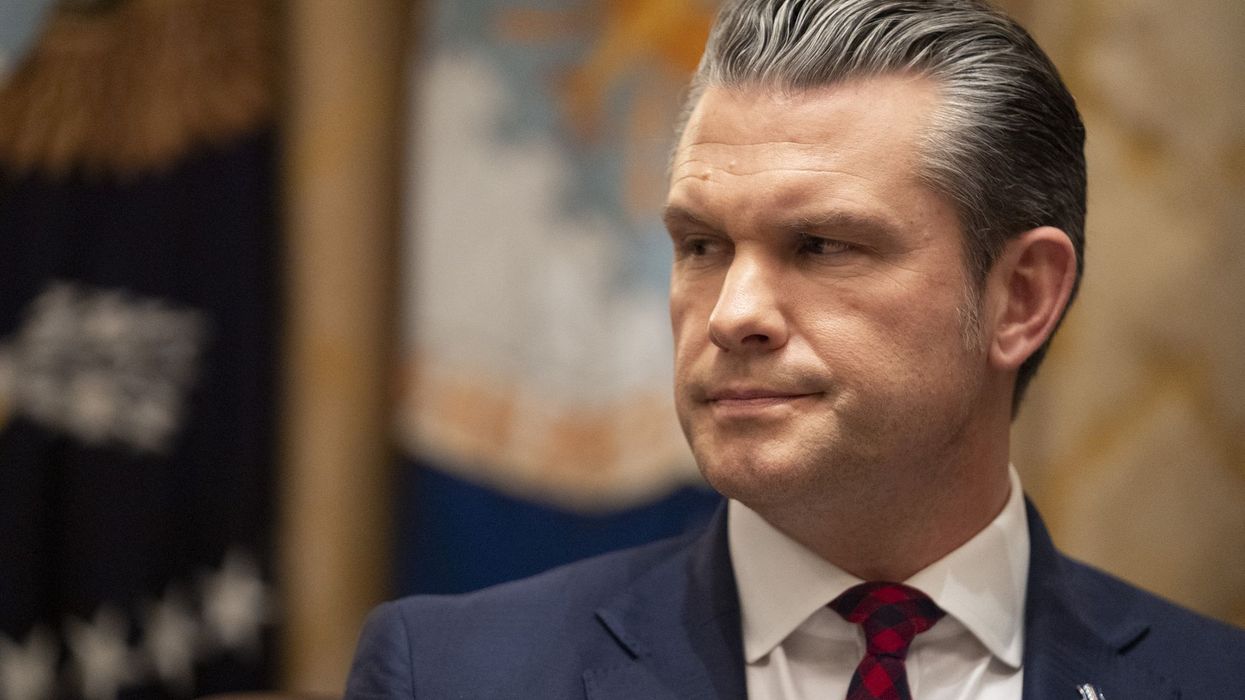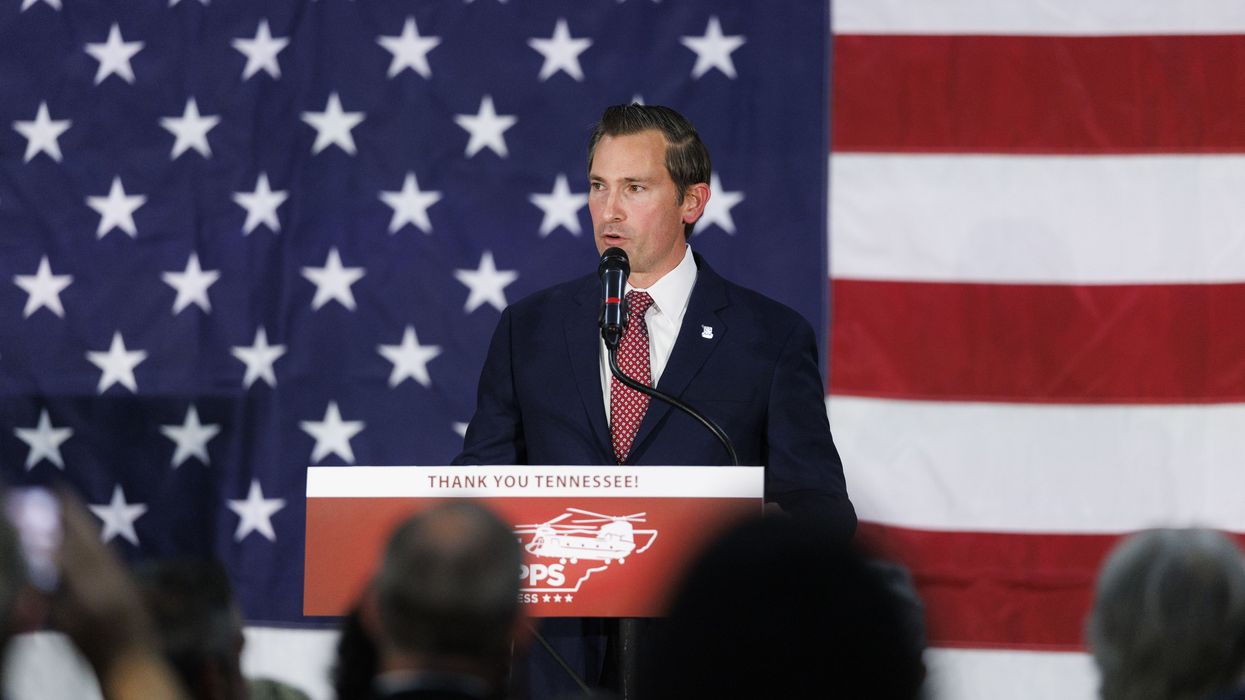January, 13 2009, 08:53am EDT

ACLU Files Habeas Petition Challenging Guantanamo Detention Of Prisoner Captured As Juvenile
Former Prosecutor Supports ACLU Legal Effort Representing Mohammed Jawad
WASHINGTON
The American Civil Liberties Union filed a petition for habeas
corpus today in federal court in the District of Columbia to challenge the
unlawful detention of Mohammed Jawad, who has been held for over six years at
Guantanamo Bay. Lt. Col. Darrel Vandeveld, the former lead prosecutor in Jawad's
military commission case, is supporting the ACLU's legal challenge.
Jawad, now about 23 years old, has been in custody since he was captured at
the age of 16 or 17 and is one of two Guantanamo prisoners the United States is
prosecuting for acts allegedly committed when they were juveniles. Jawad is
accused of throwing a hand grenade at two U.S. service members and their
interpreter in Afghanistan.
"It would be a miscarriage of justice for President-elect Obama to continue
Mr. Jawad's unlawful detention in Guantanamo, particularly considering that Mr.
Jawad was captured as a teenager and detained based on alleged confessions
obtained through torture," said Hina Shamsi, staff attorney with the ACLU
National Security Project. "The Bush administration compounded this injustice by
using torture-derived evidence to prosecute Mr. Jawad for war crimes in the
unconstitutional military commissions. The government's continued detention and
prosecution of Mr. Jawad violates America's values and the Constitution, as well
as this country's binding obligations under the Geneva Conventions and human
rights law."
In September, prosecutor Vandeveld left the military commissions because he
did not believe he could ethically proceed with the case. In a declaration filed
in support of Jawad's petition, Vandeveld told the court that there is "no
credible evidence or legal basis" to justify Jawad's detention and prosecution,
and that the commission system's flaws make it impossible for anyone "to harbor
the remotest hope that justice is an achievable goal." Vandeveld does not
believe Jawad's release presents any risk.
"I have no doubt at all - none - that Mr. Jawad would pose no threat
whatsoever to me, his former prosecutor and now-repentant persecutor," said
Vandeveld in his declaration. "Six years is long enough for a boy of sixteen to
serve in virtual solitary confinement, in a distant land, for reasons he may
never fully understand. Mr. Jawad should be released to resume his life in a
civil society, for his sake, and for our own sense of justice and perhaps to
restore a measure of our basic humanity."
In a separate legal case argued today, the Bush administration is in the
United States Court of Military Commission Review appealing a military
commission judge's decision to throw out the torture-tainted evidence against
Jawad. In November, Army judge Col. Stephen Henley held that evidence collected
while Jawad was in U.S. custody could not be admitted in his trial because it
had been obtained under duress. The government told the judge that Jawad's
alleged confessions were the centerpiece of its case against him and has asked
the proceedings to be stayed until the appeals court rules.
"The fact that the government persists in trying to use evidence obtained
through torture says everything you need to know about the integrity of its
case," said U.S. Air Force Major David J. R. Frakt, who represents Jawad in the
military commission case and is co-counsel in the habeas case. "But the larger
problem is that Mr. Jawad should never have been prosecuted in the military
commissions system at all. Our values of due process and fair justice apply to
all defendants and should not depend upon whom we are prosecuting and what the
alleged crimes are. Mr. Jawad's only meaningful opportunity to challenge the
basis for his detention comes through this habeas case, in a legitimate court."
Among other forms of abusive treatment, Jawad was subjected to the military's
so-called "frequent flyer" program, in which detainees at Guantanamo were
subjected to sleep deprivation for extended periods of time. In May 2004, a few
months after Jawad tried to commit suicide in his cell, prison officials
deprived him of sleep for two weeks by moving him 112 times in 14 days - and
they did so after having been ordered by their commanding general to discontinue
this inhumane program.
Attorneys on the habeas case are Shamsi and Jonathan Hafetz of the ACLU
National Security Project, Arthur Spitzer of the ACLU of the National Capital
Area and Frakt.
The ACLU's legal brief and the declaration from Vandeveld are available at: www.aclu.org/safefree/detention/38305lgl20090113.html
Additional information about the ACLU's work related to the detention of
prisoners at Guantanamo Bay can be found online at: www.aclu.org/gitmo
The American Civil Liberties Union was founded in 1920 and is our nation's guardian of liberty. The ACLU works in the courts, legislatures and communities to defend and preserve the individual rights and liberties guaranteed to all people in this country by the Constitution and laws of the United States.
(212) 549-2666LATEST NEWS
After Trump's Latest Racist Rant, Ilhan Omar Hopes 'He Gets the Help He Desperately Needs'
“His obsession with me is creepy," said Rep. Ilhan Omar, the first Somali American ever elected to the US Congress.
Dec 03, 2025
Rep. Ilhan Omar, the first Somali American ever elected to the US Congress, said Tuesday that she hopes President Donald Trump "gets the help he needs" after he ended a Cabinet meeting with a bigoted tirade against Somali immigrants.
Trump specifically attacked Minnesota's Somali community—falsely claiming that "they contribute nothing"—and singled out Omar (D-Minn) by name, calling her "garbage" and a "terrible person."
Omar hit back in a brief social media post, characterizing the president's remarks as clear evidence that he's unwell.
"His obsession with me is creepy," Omar wrote.
His obsession with me is creepy. I hope he gets the help he desperately needs. https://t.co/pxOpAChHse
— Ilhan Omar (@IlhanMN) December 2, 2025
Trump's comments came as his administration prepared to target Somali immigrants with Immigration and Customs Enforcement (ICE) raids in the Minneapolis-St. Paul region. Around 80,000 Somalis live in Minnesota.
The New York Times reported Tuesday that the directive for ICE raids in Minnesota "came immediately after" Trump used his social media platform to launch an appalling attack on Somalis and others in the wake of the shooting of two National Guard members. The man charged with the shooting is an Afghan national who worked as a member of a CIA-backed "Zero Unit" during the war in Afghanistan before resettling in the US.
Kristi Noem, head of the US Department of Homeland Security, has exploited the shooting to ramp up the administration's anti-immigrant agenda, proposing what she called "a full travel ban on every damn country that’s been flooding our nation with killers, leeches, and entitlement junkies," echoing Trump's white nationalist rhetoric.
Following Trump's latest attack on Somalis, Minnesota Attorney General Keith Ellison said in a statement that the president's "disgraceful attacks on Minnesota’s Somali community are injecting more of his poisonous racism into our beloved home state."
"Hearing him single out our people based solely on their race and country of origin is downright disgusting," Ellison said. "Minnesotans stand up for our neighbors when they're under attack. And as Minnesota's attorney general, I will use every tool I have to protect all our neighbors, including our vibrant Somali community, from these dangerous, racist threats. Our neighbors deserve no less."
Keep ReadingShow Less
Hegseth 'Responsible' for 'Murder': Family Files Formal Complaint Over Killing of Colombian Fisherman
According to the official filing, Trump's Defense Secretary "has admitted that he gave such orders despite the fact that he did not know the identity of those being targeted for these bombings and extra-judicial killings."
Dec 03, 2025
The family of Colombian fisherman Alejandro Carranza Medina, believed killed by the US military in a boat bombing in the Caribbean Sea on Sept. 15, has filed a formal complaint with the Inter-American Commission on Human Rights accusing US Secretary of Defense Pete Hegseth of murder over the unlawful attack.
"From numerous news reports, we know that [Hegseth] was responsible for ordering the bombing of boats like those of Alejandro Carranza and the murder of all those on such boats," reads the petition, filed Tuesday on behalf of Carranza's family by Dan Kovalik, a human rights attorney based in Pittsburgh.
"Secretary Hegseth," the petition continues, "has admitted that he gave such orders despite the fact that he did not know the identity of those being targeted for these bombings and extra-judicial killings."
The complaint also notes that President Donald Trump, the commander in chief of the US military, "ratified the conduct of Secretary Hegseth described herein.”
First reported on by The Guardian, the filing of the petition with the IACHR—an autonomous body under the charter of Organization of American States (OAS) designed to uphold human rights in the Western Hemisphere—could result in the initiation of an investigation and the release of findings about the bombing that took the life of Carranza and two other individuals believed to be aboard the vessel.
The petition, the outlet noted, "marks the first formal complaint over the airstrikes by the Trump administration against suspected drug boats, attacks that the White House says are justified under a novel interpretation of law." Experts in international human rights law have stated from the outset that the administration's justifications lack legal basis and that the attacks constitute unlawful criminal acts.
According to The Guardian:
Carranza, 42, appears to have been killed in the second strike of the Trump administration’s bombing campaign, on 15 September. The administration has publicly disclosed 21 strikes on alleged drug boats. Carranza’s family says he was a fisher who would often set out in search of marlin and tuna.
On the day of the strike, Trump announced on his Truth Social platform that “This morning, on my Orders, US Military Forces conducted a SECOND Kinetic Strike against positively identified, extraordinarily violent drug trafficking cartels and narcoterrorists in the SOUTHCOM area of responsibility”. Trump attached video marked “unclassified” of a small boat floating in the water before it was struck.
Both Hegseth, the highest-ranked civilian at the Pentagon, and Trump have been under growing scrutiny for the series of boat bombings that have resulted in the extrajudicial killing of over 80 people since September. Experts have said the killings should be seen as "murder, plain and simple."
New revelations about a strike on Sept. 2, in which two survivors of an initial bombing were later killed as they clung to the exploded boat on which they were traveling, has evelated that concern in Washington, DC this week with lawmakers seeking answers about the attack which, even if one accepted the legality of the initial strike under the construct the Trump administration has tried to claim, would constitute a clear human rights violation amounting to a war crime.
In an interview with Agence France-Presse in October, Katerine Hernandez, Carranza's wife in Colombia, said her husband was "a good man" devoted to fishing and providing for his family. "Why did they just take his life like that?" she asked.
Hernandez denies that Carranza was involved in drug trafficking, as Trump and Hegseth have alleged without providing evidence, but also suggested that even if drug trafficking was taking place, it would not justify his murder. "The fishermen have the right to live," she said. "Why didn't they just detain them?"
In a Tuesday statement, the IACHR urged the US government to "ensure respect for human rights" during any and all extraterritorial military operations in the region, noting the deaths of a high number of persons both in the Caribbean and in the Pacific, where other strikes have taken place.
"While acknowledging the seriousness of organized crime and its impact on the enjoyment of human rights, the Commission recalls that States are obliged to respect and ensure the right to life of all persons under their jurisdiction," the statement reads.
"According to the Inter-American jurisprudence, this duty extends to situations when State agents exercise authority or effective control, including extraterritorial actions at sea," it continues. "When lethal force is used by security or military personnel outside national territory, States have the obligation to demonstrate that such actions were strictly lawful, necessary, and proportionate, and to investigate, ex officio, any resulting loss of life. These obligations persist irrespective of where the operations occur, or the status attributed to the individuals affected. Likewise, persons under State control must always enjoy full respect for due process and humane treatment."
The commission called on the US to "refrain from employing lethal military force in the context of public security operations, ensuring that any counter-crime or security operation fully complies with international human rights standards; conduct prompt, impartial, and independent investigations into all deaths and detentions resulting from these actions; and adopt effective measures to prevent recurrence."
Keep ReadingShow Less
'Flashing Warning Sign' for GOP as Republican Squeaks Out Win in Deep-Red Tennessee District
"The fact that Republicans spent millions to protect this Trump +22 district and still lost so much ground should have the GOP shaking in their boots," said the chair of the Democratic National Committee.
Dec 03, 2025
Republican Matt Van Epps narrowly prevailed Tuesday in a special election for a Tennessee district that President Donald Trump carried by 22 points last year, a result that has the GOP increasingly worried about the party's prospects in the 2026 midterms as voters take out their anger over high living costs.
Van Epps defeated Democratic candidate Aftyn Behn in the US House race by roughly nine points, a strikingly narrow margin for a district that Republican Mark Green—who resigned from Congress over the summer—won by 21 points last year.
Behn placed affordability, which Trump has called a Democratic "scam," at the center of her bid to represent Tennessee's 7th Congressional District, replicating the playbooks of recently successful Democratic campaigns across the country.
"I don’t care what political party you belong to, but if you are upset about the cost of living and the chaos of Washington, then I’m your candidate, and I welcome you with open arms," Behn said during the race, which drew national attention and millions of dollars in spending.
The Planned Parenthood Action Fund (PPAF), which backed Behn—a supporter of abortion rights—said late Tuesday that "the lesson from Aftyn’s campaign is clear: Voters are looking for leaders who will put healthcare affordability over billionaire special interests."
"Every day that President Trump and his backers are in power, people suffer," said Alexis McGill Johnson, PPAF's president and CEO. "They’re seeing healthcare costs rise, abortion bans in 20 states, and health center closures leading to longer wait times and distances to get care—all worsening the healthcare crisis the Trump administration created."
Notably, while Van Epps embraced Trump, much of the Republican messaging in the race focused on attacking Behn as a "radical" rather than championing the president's economic agenda, which voters across the country blame for driving up costs. Behn, who received over 115% of the 2022 Democrat nominee's vote total, said that Republicans were attacking her because "they don't have a plan to make healthcare more affordable."
The GOP scramble to defend a deep-red seat was seen by both Republicans and Democrats as a possible signal of what's to come in next year's midterms. One House Republican, speaking anonymously, told Politico that "tonight is a sign that 2026 is going to be a bitch of an election cycle."
Ken Martin, chair of the Democratic National Committee, said in a statement that "what happened tonight in Tennessee makes it clear: Democrats are on offense and Republicans are on the ropes."
"Aftyn Behn’s overperformance in this Trump +22 district is historic and a flashing warning sign for Republicans heading into the midterms. Aftyn centered her campaign on lowering grocery, housing, and healthcare costs for Tennessee families," said Martin. "The fact that Republicans spent millions to protect this Trump +22 district and still lost so much ground should have the GOP shaking in their boots."
Keep ReadingShow Less
Most Popular


